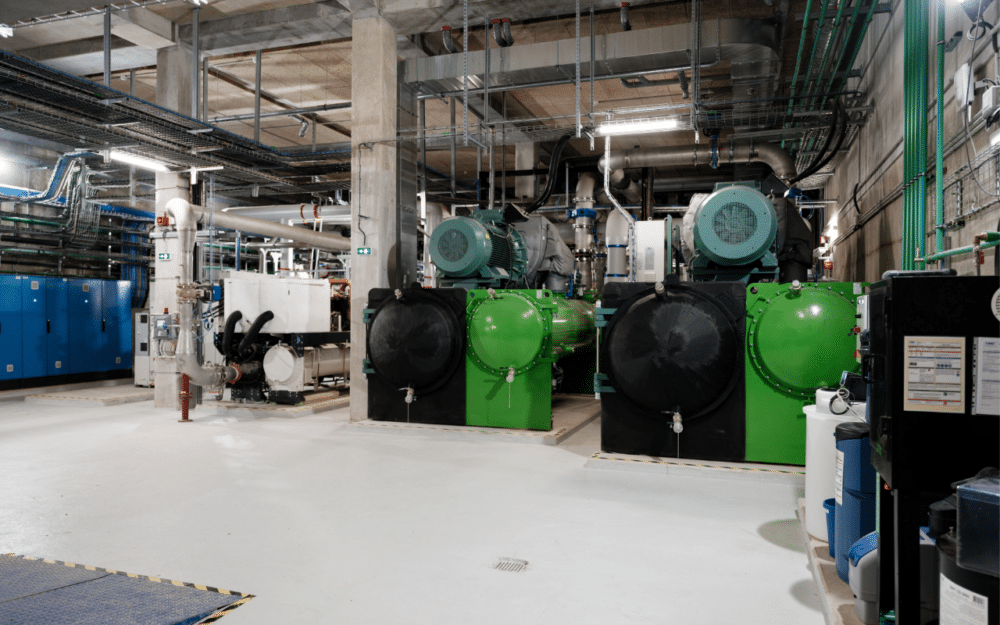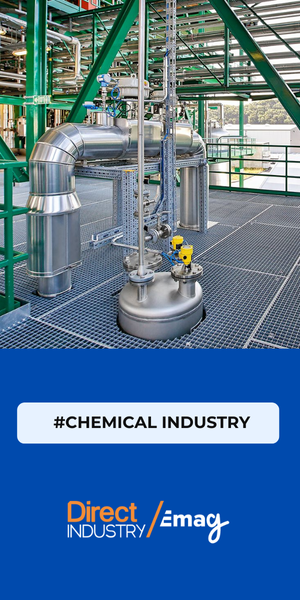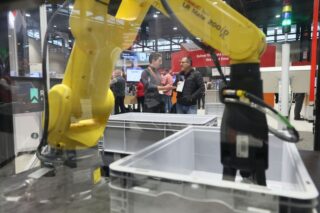The Paris 2024 Olympics kick off this week in Paris and Marseille, with millions of supporters expected for this major sporting event. The organizers have emphasized that these Games will be the most eco-friendly in history, focusing on the use of bio-sourced materials for constructing new sports facilities and the athletes’ village. But what about the energy performance of the buildings?
Johnson Controls, renowned for providing intelligent building solutions to major sports arenas worldwide, is responsible for optimizing the energy performance of eight Olympic sites in Paris, making them smarter and more energy-efficient. The company has implemented advanced building automation systems, HVAC technologies, and fire suppression systems at these locations. The goal is to contribute to reducing the event’s carbon footprint by 50% compared to the London Games.
Adidas Arena
Two new 3.3 MW York industrial chillers from Johnson Controls are now operational at the new cooling production plant, La Chapelle, located in the Adidas Arena sports and cultural complex. As the 12th cooling plant in Paris’s network, it meets the cooling needs of the stadium, which will host badminton and gymnastics events. These chillers provide sustainable and energy-efficient cooling.
Roland Garros
At the famous Parisian tennis stadium, a Johnson Controls Metasys building automation system connects the building’s most vital equipment, including security, HVAC, fire protection, lighting control, and energy management. The system monitors performance and provides real-time data, enabling facility managers to identify potential issues, make adjustments, and ensure the site operates as efficiently and sustainably as possible.
In a press release, Marc Vandiepenbeeck, CFO and President EMEALA at Johnson Controls, stated:
“As temperatures rise and heatwaves become the norm, sustainable cooling technology is essential to ensure optimal conditions at sports venues while minimizing environmental impact. With heat pumps offering the dual benefits of heating and cooling—and utilizing heat from ambient sources such as wastewater, outdoor air, geothermal, seawater, and more, instead of burning fossil fuels—they represent a critical technology for the energy transition.”
Johnson Controls is well-versed in equipping sports and entertainment venues worldwide. The company has provided intelligent building solutions to major global sports arenas, including Intaleq in Doha, Fiserv Forum in Milwaukee, O2 Arena in London, Allegiant Stadium in Las Vegas, and Chase Center in San Francisco.





![Image [BUYING GUIDE] How to Choose the Right Industrial Robot?](/wp-content/uploads/sites/3/Industrial-Robot-320x213.jpg)

![Image [Buying Guide] How to Choose the Right Safety Shoes?](/wp-content/uploads/sites/3/Safety-Shoes-320x213.jpg)


![Image [Buying Guide] How to Choose the Right AMR?](/wp-content/uploads/sites/3/AMR-320x213.jpg)